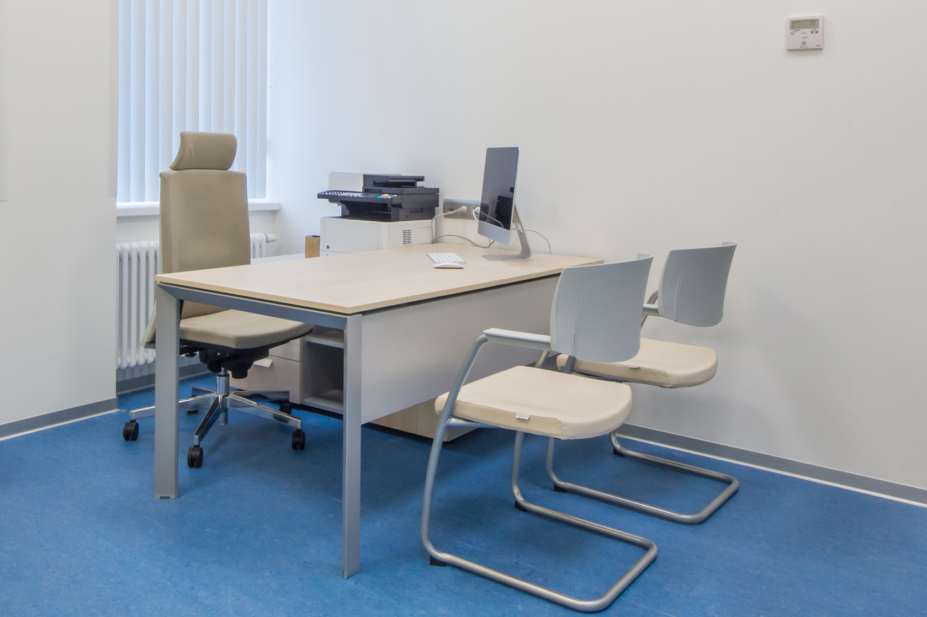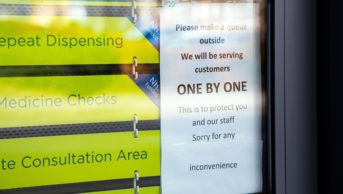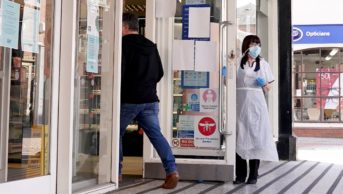
Shutterstock.com
Pharmacists will have to source their own IT system after April 2021 if they want to continue providing the Community Pharmacist Consultation Service (CPCS), NHS England has said.
The CPCS, which was announced as part of the Community Pharmacy Contract Framework in July 2019, combines the existing Digital Minor Illness Referral Service and NHS Urgent Medicines Supply Advanced Service, and is expected to launch on 29 October 2019.
In the ‘Advanced Service Specification’ for the CPCS, published on 2 September 2019, NHS England said that for pharmacies to offer the service, they will have to have a consultation room with “IT equipment accessible within” it from 1 April 2021 to allow for contemporaneous record keeping during the consultations.
Pharmacists will use the “CPCS IT system” to keep records of interactions with patients as well as receive alerts from NHS 111 when a patient is referred. The NHS England-supported IT system makes use of an ‘interoperability toolkit’, currently used by GP out-of-hours services, to send the referral alerts.
As only two pharmacy systems — PharmOutcomes and Sonar — are currently able to receive alerts through the toolkit, NHS England has said it would provide the IT system to community pharmacies for the first 18 months of the service.
After this time pharmacy contractors will be expected to source their own system if they wish to continue offering the service.
Pharmacists will also be expected to use transition funding — a pot of funding first mentioned in the contract framework — to source their new IT system.
Pharmacies signing up to the service before 1 December 2019 can access £900 in transition funding, while those signing up before 15 January 2020 can only get £600 in funding.
However, NHS England said it was still discussing how the rest of the transition funding will be distributed with the Pharmaceutical Services Negotiating Committee (PSNC).
“During the contract negotiations it became clear that the implementation of this service was of the highest priority for the NHS and the government,” said Alastair Buxton, director of NHS services at the PSNC.
“If community pharmacy can deliver this service successfully it will secure our place at the heart of primary care and will give the sector leverage for the future; if we choose to ignore what our customer wants, we will not be able to gain that leverage.
“I, therefore, encourage all contractors to register early to provide the service, both to show community pharmacy’s willingness to provide this type of clinical service and to take advantage of the supplement to the transition payment.”
Buxton added that the launch of the CPCS on 29 October 2019 would be a “landmark moment for community pharmacy’s expanding role within the NHS”.
Under the CPCS, pharmacists will be paid £14 per completed consultation, with NHS England expecting pharmacies to receive one or two consultations per week through the service.
According to the specification, a referral for an urgent medicine supply is considered complete “when the pharmacist has a consultation with the patient (telephone or face-to-face) and confirms no supply is required, the patient is given advice, the patient purchases the required product, the patient is referred on to another healthcare provider, an EPS prescription is downloaded and dispensed, or an item is not available and the patient is referred to a second pharmacy (both pharmacies can claim a consultation fee in this scenario)”.
For minor illnesses, “a referral is completed when the pharmacist has a consultation with the patient (telephone or face to face)”, adding that “no consultation fee can be claimed where the pharmacist cannot make any contact with the referred patient”.
Bruce Warner, deputy chief pharmaceutical officer for England, said he hoped that community pharmacies register for the service so that it is available to patients this winter.
“It represents a major step change in the service the NHS provides to patients, and fully uses the clinical skills and expertise local pharmacists have to offer as the ‘go to first’ point of call for people with minor illnesses,” he said.
“It’s an exciting time and it establishes community pharmacies as a major clinical provider within the NHS.”
The Advanced Service Specification covers the implementation of referrals to community pharmacy from NHS 111 telephone service nationally, with referrals from general practice and NHS 111 online still in the pilot phase in parts of the UK, and referrals from hospital emergency departments and urgent treatment centres in the pipeline.
Registration for the CPCS through NHS Business Services Authority opens on 2 September 2019.
- This article was amended on 3 September 2019 to reflect the fact that pharmacies will have have provide their own IT systems from 2021, not 2020.


